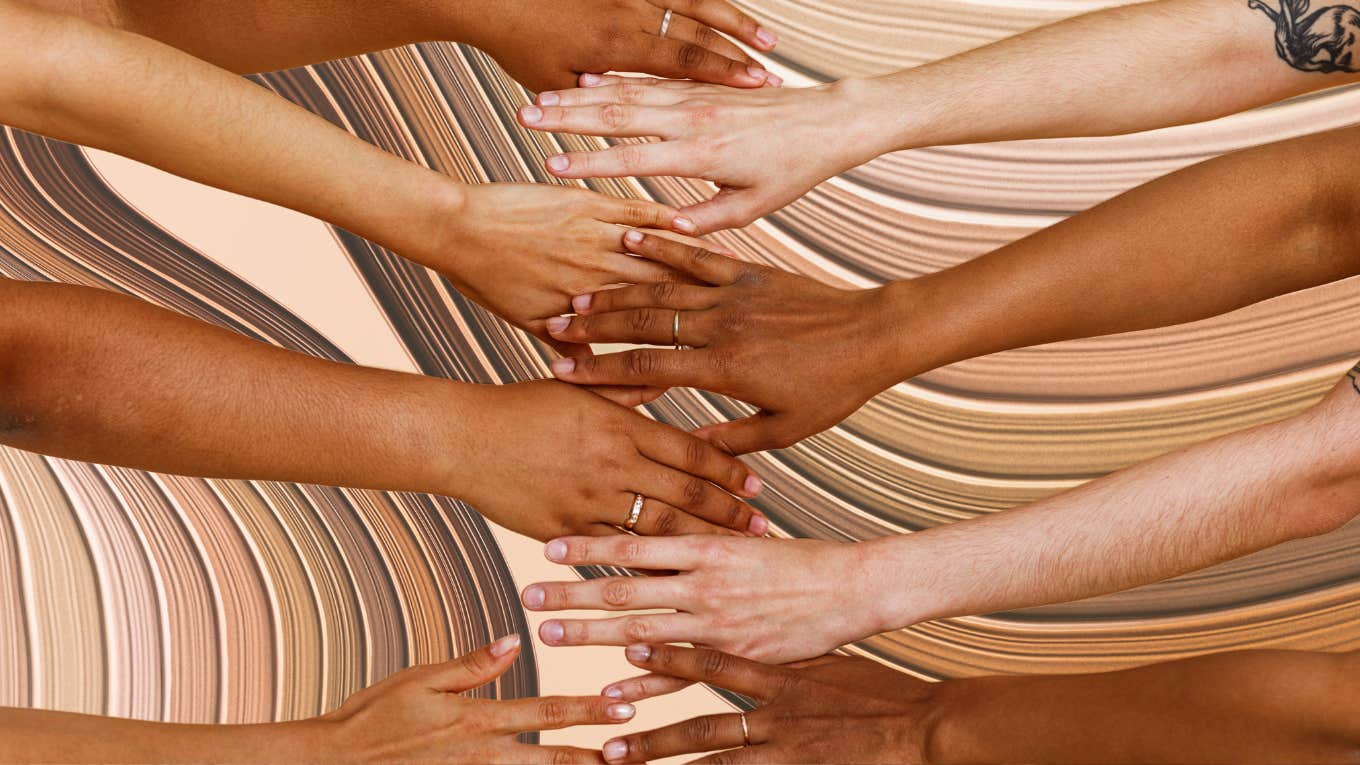How Tanning Reinforces Problematic Beauty Ideals & Commodifies Black Skin
I can’t scrub my tan off.
 Artem Varnitsin, SVP | Canva
Artem Varnitsin, SVP | Canva Ah, summer. The season for long days, sweltering heat, cookouts — and white people blathering that if they are out in the sun long enough, they can be as tan as any Black person. Or fretting that they resemble lobsters because their pasty complexions cannot handle the sun.
No, I do not consider such ridiculous musings compliments. A pastime that white people consider harmless is highly complicated for me.
Tanning is complicated if you aren’t white.
As someone reared in a predominantly white neighborhood, every summer without fail, I contended with at least one white kid who proclaimed that they looked like me with their tan and at least one other white kid who lamented their ghostly, pale complexion and wished they could tan.
Don’t get me started on those white people who frequent tanning salons. From my vantage point, it’s insane how much they’re willing to pay to cook and submerge themselves with harmful chemicals in the hopes that they end up two shades lighter than my Beyonce shade of Black.
Throughout my life, I’ve known other Black people, as well as other people of color, who were taught to regard the sun as an enemy.
They were told to stay out of the sun so that they wouldn’t get "too dark." To this day, some BIPOC, particularly women, buy skin-bleaching creams in the hope that their skin will appear lighter.
Summer for these folx could not be the carefree season that other people enjoyed because their skin color was regarded as a curse.
My issues with tanning: As an adult, I never fail to notice the audacity of those who disparage my skin color in the winter but covet it in the summer. I also think about the irony of those who look like me going to great lengths to avoid tanning because of the pervasive anti-blackness in our society.
White people fetishizing Black skin is highly offensive because I know it’s not valued for its own sake.
For white people, our skin tones are a cool aesthetic that they can put on and off on a whim. Tanning allows them to experience the benefits of melanin without the racism that comes with it. They can try on Black beauty without the Black trauma I’ve experienced for nearly 54 years of my life.
White women remain cushioned in their racial privilege, but tanning allows them to have some "spice" of "exotic" women. They are still recognizable as white women, but they have the benefit of my tortured melanin.
Another issue I have with white people coveting tans is that they treat them as disposable, particularly the kind they spray on.
They have the privilege to choose when they want to look white, and when they don’t. It’s triggering to me that they can scrub their fake tans off in the shower because as a child, I wished that I could scrub off my Beyonce tan. I didn’t see my skin color as something to be proud of. I regarded it as a source of shame.
In contrast to white people who covet my skin tone this time of year, my tan is permanent and runs the risk of getting me killed. Trayvon Martin, Breonna Taylor, and Sandra Bland are just several of the numerous Black people whose existence so threatened white people, as well as white law enforcement, that they were murdered.
How Black and brown skin is commodified: White people tend to get defensive about tanning because they regard it as a harmless way to switch up their looks. But subconsciously, going to great lengths to change their skin color is a sign of insecurity and self-hatred. However, they aren’t told such things due to their privilege.
At the same time, a Black woman buying Porcelana to lighten her skin tone is shamed and told that doing so is the height of self-hatred. In short, white people reserve the right to change their skin tone while BIPOC don’t because Black and brown skin is only acceptable on white bodies.
The male-dominated beauty industry has commodified Black and brown skin — skin tones that historically have been demonized — and created insecurities in white women about their pale skin. Then the industry sold them the commodified skin to fix the white woman’s problem that they created in the first place.
One only needs to look at white celebrities like Ariana Grande and Kylie Jenner who’ve based their careers on tanning to look "exotic" to see how pervasive tanning has become. It’s more lucrative to pretend to be Black or brown than to be Black or brown.
I consider my Black skin beautiful today, but it also harbors a lot of pain — something that no white person ever has to experience.
Before a white person goes to the beach, the tanning salon, or sprays chemicals on their skin for a tan, I wish they would consider how coveting and fetishizing Black and brown skin affects BIPOC.
They need to sit on the fact that they are supporting an industry that commodifies and exploits my skin tone — the same one that these same people vilify. They also need to consider that tanning reinforces the toxic idea that your skin color needs to be changed to be acceptable.
Perhaps, if we start rejecting the idea that our skin color needs to be changed, it might go a long way toward mitigating self-hatred in everyone.
Vena Moore is a writer who lives in Brooklyn, NY. Her articles have been featured in Medium and The Good Men Project.

